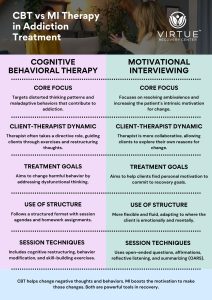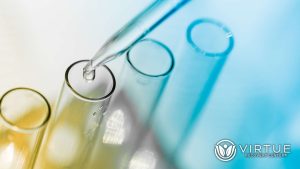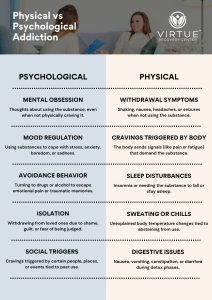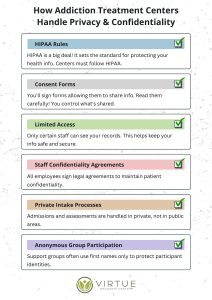Recovering from drug or alcohol abuse involves a comprehensive approach, where detox programs play a vital role. These programs, notably those in treatment facilities, emphasize the importance of a nutritious diet in supporting recovery. This comprehensive article explores how nutrition is pivotal in aiding recovery processes, especially in alcohol detox and drug treatment options.
Understanding Detoxification in Substance Abuse Recovery
Detoxification, a critical first step in overcoming drug and alcohol abuse, involves eliminating toxic chemicals from the body. This phase can be physically taxing, with nutritional support playing a key role in managing it effectively.
The Science Behind Nutrition in Substance Abuse Recovery
Substance abuse disrupts the body’s natural processes, depleting essential vitamins and minerals like B vitamins, zinc, magnesium, and vitamin D. These deficiencies can lead to fatigue, depression, anxiety, and weakened immunity. Nutrition is crucial in repairing this damage by replenishing nutrient levels, boosting energy, and supporting organ function. A balanced diet also helps restore neurotransmitter production, which is vital for mood stabilization and reducing cravings. Research shows that proper nutrition can significantly enhance the effectiveness of detox programs, improving overall recovery outcomes.
The Impact of Nutrition on Detox and Recovery
During detox, nutritional needs often increase due to the effects of malnutrition precipitated by substance abuse. Focusing on a nutritious diet, rich in vitamins and minerals, is crucial for recovery.
- Replenishing essential nutrients lost due to substance abuse.
- Supporting neurotransmitter function with foods rich in amino acids.
- Avoiding processed foods to stabilize mood and energy.
- Improving gut health to aid overall recovery.
Implementing Nutrition in Detox Programs
Treatment facilities, like Virtue Recovery in Las Vegas, integrate nutrition as a key component of their detox programs. This includes:
- Individual nutritional assessments for personalized dietary plans.
- Focus on nutritious diet choices during therapy sessions.
- Continuous adjustment of dietary plans based on recovery progress.
Foods to Include and Avoid During Detox
Foods to Include:
- High-Protein Foods: Eggs, fish, and lean meats help repair tissues and support neurotransmitter production.
- Leafy Greens and Vegetables: Spinach, kale, and broccoli provide essential vitamins and antioxidants to combat oxidative stress caused by substance abuse.
- Whole Grains: Brown rice, quinoa, and oats stabilize blood sugar and provide sustained energy.
- Fruits: Bananas, berries, and oranges replenish vitamins and minerals like potassium and vitamin C.
- Healthy Fats: Avocados, nuts, and seeds support brain health and reduce inflammation.
Foods to Avoid:
- Processed Foods: These can cause blood sugar spikes and mood instability.
- Sugary Drinks and Snacks: They contribute to energy crashes and hinder recovery.
- Caffeine: It can exacerbate anxiety and disrupt sleep patterns during detox.
The Role of Hydration in Detox and Recovery
Hydration is a critical component of detoxification, as water helps flush toxins from the body and supports overall organ function. During detox, dehydration can worsen withdrawal symptoms like headaches, fatigue, and nausea. To stay hydrated:
- Drink at least 8-10 glasses of water daily.
- Incorporate electrolyte-rich beverages, especially if experiencing excessive sweating or vomiting.
- Add fruits like lemon or cucumber to water for natural flavor and added nutrients. Staying hydrated improves physical recovery and boosts mental clarity and energy levels during this challenging phase.
Addressing Nutritional Deficiencies Common in Substance Abuse
Substance abuse often leads to severe deficiencies in nutrients that are vital for recovery:
- B Vitamins: Essential for energy production and brain health.
- Magnesium: Important for muscle relaxation, mood stabilization, and reducing anxiety.
- Omega-3 Fatty Acids: Crucial for brain function and reducing inflammation.
- Vitamin C and Zinc: Support immune health and repair tissues. Addressing these deficiencies through targeted nutrition helps reduce withdrawal symptoms, improve energy, and enhance overall well-being during detox. A diet rich in vegetables, fruits, nuts, and whole grains can help restore these depleted nutrients.
The Gut-Brain Connection in Recovery
The gut and brain are deeply interconnected, with the gut often referred to as the “second brain” due to its role in producing neurotransmitters like serotonin. Substance abuse can damage gut health, leading to imbalances that affect mood, energy, and cravings. Supporting gut health during detox includes:
- Probiotic Foods: Yogurt, kimchi, and sauerkraut to replenish healthy gut bacteria.
- Prebiotic Foods: Bananas, garlic, and asparagus to feed beneficial bacteria.
- High-Fiber Foods: Whole grains, fruits, and vegetables to support digestion. By improving gut health, individuals can experience enhanced emotional stability and physical recovery.
The Benefits of Holistic Approaches in Detox Programs
Holistic detox programs combine nutrition with other therapies to support comprehensive recovery. At Virtue Recovery, this includes:
- Mindfulness Practices: Yoga and meditation reduce stress and promote mental clarity.
- Physical Activity: Exercise improves circulation, aids toxin removal, and boosts mood.
- Creative Therapies: Art and music therapy provide emotional outlets for healing. When integrated with nutrition, these therapies address both physical and emotional aspects of recovery, creating a well-rounded approach that supports long-term sobriety.
Myths About Nutrition in Detox
Myth 1: “Eating healthy is too expensive.”
Reality: A balanced diet can be affordable by focusing on staples like beans, rice, frozen vegetables, and seasonal fruits.
Myth 2: “Supplements can replace meals.”
Reality: While supplements can help address deficiencies, they cannot replicate the full benefits of whole foods, which provide fiber and additional nutrients.
Myth 3: “You only need to focus on nutrition after detox.”
Reality: Nutrition is vital during detox to manage withdrawal symptoms, restore energy, and lay the foundation for recovery.
Common Mistakes in Detox Nutrition
Mistake 1: Overloading on Sugar and Caffeine
Many individuals turn to sugary snacks and caffeinated drinks for quick energy, but these can cause mood crashes and hinder recovery.
Mistake 2: Skipping Meals
Skipping meals can exacerbate fatigue and irritability, making it harder to focus on recovery.
Mistake 3: Neglecting Hydration
Dehydration worsens withdrawal symptoms and slows toxin elimination, making hydration a critical but often overlooked component.
Mistake 4: Focusing Only on Calories
Recovery is about nutrient density, not just calorie counts. Choosing whole, nutrient-rich foods ensures the body gets what it needs to heal.
By addressing these common mistakes, individuals can maximize the benefits of nutrition during detox and recovery.
The Long-Term Benefits of Nutrition in Recovery
A nutritious diet during detox sets the foundation for long-term recovery by improving physical and mental health and boosting mood and energy levels through the balancing of neurotransmitters like serotonin, dopamine, and endorphins.
Challenges in Nutritional Implementation
Implementing a nutrition-based plan in detox programs involves addressing individual dietary preferences and educating on the long-term benefits of a nutritious diet.
Conclusion
The role of nutrition in detox programs is indispensable in supporting recovery from drug or alcohol abuse. Treatment facilities that integrate nutritional strategies into their treatment options enhance the effectiveness of recovery.
FAQs: Nutrition in Recovery and Detox Programs
What is the role of nutrition in drug and alcohol detox programs?
Nutrition plays a critical role in detox programs, aiding in the elimination of toxic chemicals and supporting the body’s recovery from the effects of substance abuse. A nutritious diet helps in replenishing essential nutrients, stabilizing mood and energy levels, and improving overall physical and mental health.
How does malnutrition affect detoxification?
Malnutrition, often a result of substance abuse, can lead to deficiencies in essential vitamins and minerals. This can exacerbate the challenges of detoxification, making the process more physically and mentally taxing. Proper nutrition is therefore essential to address these deficiencies and support the detox process.
What are the benefits of a nutritious diet during detox?
A nutritious diet during detox can replenish lost nutrients, support neurotransmitter function, avoid mood and energy fluctuations caused by processed foods, and improve gut health. This holistic approach sets a strong foundation for long-term recovery.
How do treatment facilities like Virtue Recovery in Las Vegas implement nutrition in their detox programs?
Treatment facilities integrate nutrition by conducting individual nutritional assessments, focusing on nutritious diet choices during therapy sessions, and continuously adjusting dietary plans to meet the evolving needs of those in recovery.
What are the long-term benefits of maintaining a nutritious diet post-detox?
Maintaining a nutritious diet post-detox enhances long-term recovery by improving physical and mental health, boosting mood and energy levels, and helping to balance neurotransmitters such as serotonin, dopamine, and endorphin, which are crucial for mental well-being and preventing relapse.
What are the challenges in implementing nutrition in detox programs?
Challenges include catering to individual dietary preferences and needs, and educating individuals on the long-term benefits of maintaining a nutritious diet as a part of their recovery and overall well-being.
Can a Proper Nutrition Plan Help in Recovery from Alcohol Abuse?
A proper nutrition plan can greatly aid in the recovery from alcohol abuse. Alcohol consumption and ibs connection have been thoroughly researched, and it is clear that a balanced diet can help heal the body and mind. Nutrient-dense foods can alleviate symptoms of IBS and support the body’s healing process after alcohol abuse.
Citations Section
- National Institute on Drug Abuse
- Academy of Nutrition and Dietetics
- Substance Abuse and Mental Health Services Administration (SAMHSA)
- Journal of the American Dietetic Association













